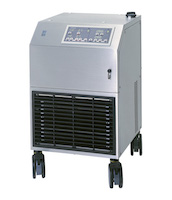
The plaintiffs, Robert Gerngross and Marisa Karamanoogian, would be among the latest claiming to suffer from such infections. The FDA has now received notice of more than 80 cases worldwide. More than 25% of those are from people who live in Pennsylvania.
Heater-coolers are used to regulate patients’ blood and tissue temperatures during complicated operations like heart surgery. They circulate water through a closed system of tubes that are draped over a patient. The devices have been found to aerosolize nontuberculosis mycobacterium, or NTM, through their exhaust fans. NTM is hardly a threat to healthy humans. However, it can be extremely dangerous to a patient undergoing open-heart surgery because their immune system is already compromised. At that point, any infection whatsoever can prove to be deadly.
NTM infections often take months or even years to present symptoms in a patient, making them especially dangerous. In particular, the Stockert 3T model poses significant risk, as FDA officials believe it may have been contaminated while being manufactured. Heater-cooler units are used in an estimated 60% of heart-bypass procedures performed each year.
It is now believed that up to 600,000 patients may have undergone cardiothoracic surgery while their heater-cooler unit blew NTM into the air. The U.S. Centers for Disease Control caution that the risk of infection from NTM exposure ranges from 1 in 100 to 1 in 1,000 for any hospital where NTM infection has occurred.
Symptoms of NTM infection can include night sweats, aches and pains, unexplained weight loss, fatigue, and fever. Other clinical manifestations have included hepatitis, renal insufficiency, splenomegaly, pancytopenia, and osteomyelitis. The CDC has issued warnings about the growing list of concerns associated with NTM infections.
Keith Allen, a physician at St. Luke’s Hospital in Kansas City, Missouri, says “we’ve only begun to scratch the surface” of understanding the impact of contaminated heater-cooler units. That could be in part because the FDA appears to have waited more than a year to issue their own safety communications after learning of the dangers of HCUs in surgical suites throughout hospitals across the country. Anyone who had open-heart surgery before 2014 should know and keep a watchful eye on themselves for the symptoms of a potentially life-threatening NTM infection.
